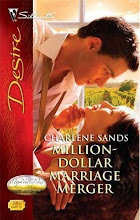I find it amazing how little things we see and do end up in our books. When they say, "Write what you know", how can you not? Our stories are reflections of our life's experiences and it doesn't matter if your book is about forenics and you know nothing about that topic. You'll do the research and make it all plausible, but it's the little things, the nuances in our stories that seem to mirror our lives and what we know.
For instance, writing for me is very intuitive. I simply know what it takes to make my scenes work and for this one particular scene, I needed my hero and heroine to come together somehow, and for the hero to admire her gumption. As I watched Animal Planet, a show I enjoy about all kinds of animals, they showed a father and son, rescuing a heifer who was having a difficult labor. The two worked together, delivered the calf and saved both their lives. Hmmm, I thought. Wouldn't that scene work for my historical story? The heroine will dive in to help our hero deliver the calf -- a messy job, for sure, but it worked and the hero begins to admire our heroine for all her traits, but mostly because she wasn't afraid to lend a hand. The bonding they share as they care for the new calf is one of those "aw shucks" moments in the story too. Just a little five minute clip on the Animal Planet helped me design that scene.
And I find that a writer is always writing. You take in everything around you, log it away in your memory bank or make yourself a note, to use for another day. This happens to me all the time. I use my life experiences, what I witness, what I read, what I watch on television and it all comes together somehow to give me the inspiration to write my story. I bet many of you are the same. I wonder what we'll learn today that we'll use in one of our stories ... tomorrow?
Subscribe to:
Post Comments (Atom)



























No comments:
Post a Comment